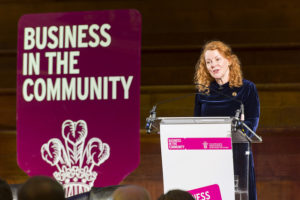Business has been urged to “put employees first” and ensure that they acquire digital skills to help them deal with the coming revolution in employment. Over the next 20 years, 90% of all work will need IT competencies.
The call comes from Business in the Community, the campaign group for responsible business backed by the Prince of Wales, and global consultants Accenture.
However, the digital skills recommendation is just one of a raft of recommendations aimed at ensuring that the coming technology transformation has a “positive impact” on employees and communities.
Business in the Community also called on significant players in providing jobs through the so-called “gig economy”—companies like Uber or Deliveroo—to ensure employees receive the same security and benefits as the wider workforce.

Amanda Mackenzie, Business in the Community chief executive, said: “Technology is transforming the world in ways that cannot be predicted. As the digital revolution progresses it creates unintended consequences that cannot be ignored.
“Responsible businesses can respond by being brave, human and long-sighted, taking practical action to ensure that technology enhances all of our lives for the better.”
Justin Keeble, managing director, Accenture Strategy, said: “Digital transformation is redefining the way we work, and business leaders need to respond by putting their people first and ensuring their skills keep pace with the changes.
“Digital skills are key to employability across generations, and responsible businesses are up-skilling and re-skilling their employees throughout their working lives to ensure they remain relevant and adaptable. Ultimately, the aim is to maintain the UK’s position as a world-leading digital economy, and one that works for everyone.”
The recommendations come on the first day of Responsible Business Week, an event led by Business in the Community aimed at highlighting the need for digital transformation to be inclusive.
Tonight will see Amanda MacKenzie and Justin Keeble join a panel of guests, including Frances O’Grady, the general secretary of the Trades Union Congress (TUC); and Carolyn Fairbairn, director general of the Confederation of British Industry (CBI) to discuss how business can “keep people at the centre of technological change”.





